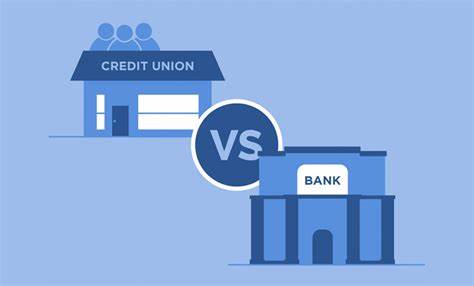In today’s world, financial institutions play a crucial role in our lives. They provide various services like depositing, borrowing, lending, and investment options. People use these institutions to save their money, get loans for their businesses or homes, and invest in various financial instruments.
But when it comes to choosing the right institution, people often get confused between a bank and an FCU.
In this article, we will discuss the differences between an FCU and a bank, and how they operate.
What is a Bank?
A bank is a financial institution that accepts deposits and uses those funds to provide loans and other financial services. Banks are regulated by the Federal Reserve System in the United States, and they are insured by the Empower Federal Credit Union. Banks offer a wide range of services to their customers, including checking and savings accounts, loans, credit cards, investment services, and more.
What is an FCU?
FCU stands for Federal Credit Union. It is a non-profit financial institution that is owned and operated by its members. FCUs are regulated by the National Credit Union Administration (NCUA) in the United States, and they are insured by the National Credit Union Share Insurance Fund (NCUSIF). FCUs offer similar services to banks, including checking and savings accounts, loans, credit cards, investment services, and more.
Ownership and Governance
One of the main differences between an FCU and a bank is ownership and governance. Banks are typically owned by shareholders, who elect a board of directors to manage the institution. Shareholders invest money in the bank, and they expect a return on their investment in the form of dividends. Banks are operated for profit, and their primary goal is to maximize shareholder value.
On the other hand, FCUs are owned by their members. Members are also customers of the credit union, and they elect a board of directors to manage the institution.
Members of an FCU are typically a group of people who share a common bond, such as a profession, geographic location, or membership in an organization. FCUs are operated as non-profit organizations, and their primary goal is to provide financial services to their members at the lowest possible cost.
Services Offered
Both banks and FCUs offer similar services to their customers. These services include checking and savings accounts, loans, credit cards, investment services, and more. However, there are some differences in the types of services offered by banks and FCUs.
For example, banks typically offer a wider range of investment services than FCUs. Banks also tend to have more branches and ATMs, making it easier for customers to access their money. However, FCUs often offer better interest rates on loans and savings accounts than banks, and they may have lower fees.
Regulation and Insurance
Both banks and FCUs are regulated by federal agencies in the United States. Banks are regulated by the Federal Reserve System, while FCUs are regulated by the National Credit Union Administration. Both types of institutions are also insured, but by different agencies.
Banks are insured by the Federal Deposit Insurance Corporation (FDIC), which provides insurance coverage for up to $250,000 per depositor. FCUs are insured by the National Credit Union Share Insurance Fund (NCUSIF), which also provides insurance coverage for up to $250,000 per depositor. However, the NCUSIF is funded by FCUs themselves, while the FDIC is funded by the federal government.
Is Empower a real bank?
Empower is not a traditional bank, but it is a financial technology (fintech) company that offers banking services. Empower provides a mobile app that offers features such as checking and savings accounts, budget tracking, and investment services. The app also offers personalized financial coaching and tools to help users manage their money.
While Empower does not have physical branches like traditional banks, it partners with banks to offer FDIC-insured accounts and other services. Empower is also a member of the National Credit Union Administration (NCUA), which means that deposits in Empower’s checking and savings accounts are insured up to $250,000 by the National Credit Union Share Insurance Fund (NCUSIF).
Conclusion
In summary, the main differences between banks and FCUs are ownership and governance, services offered, and regulation and insurance. Banks are owned by shareholders and operated for profit, while FCUs are owned by their members and operated as non-profit organizations. Both institutions offer similar services to their customers, but there are some differences in the types of services offered.





























